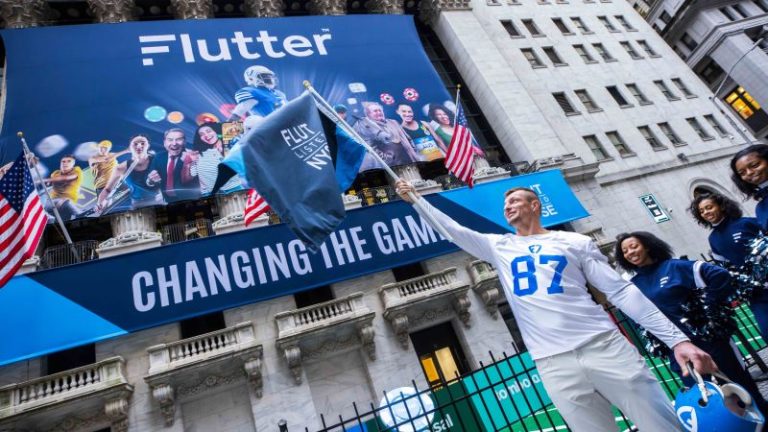Google’s monopoly trial is the battle that could change our daily lives
Most of the monopolies we deal with every day are based on physical barriers to competition. Households normally have only one choice of water or sewerage provider, and motorists have one choice of road network. No one is going to construct another set of roads for you to whizz about on. It is the same, to a lesser extent, with other kinds of services.
No one will have the chance to build another Heathrow, a big airport with two full-length runways, close to London and with good surface transport links. It is not a monopoly but its physical attributes make it the first choice for most business travellers.
There is one near-monopoly, however, with which most of us interact every day, perhaps every hour, often many times an hour, that was not built on a physical advantage. I am thinking about Google, the internet search engine owned by Alphabet and the fourth-most valuable company in the world by stock market capitalisation.
Google accounts for a shade under 94 per cent of all internet searches in the UK, according to the digital marketing agency Klatch. That sounds about right; its market share in the US is 90 per cent. There are competitors of course. Bing, DuckDuckGo and a host of lesser-known names are all available but they are fleas gnawing at the elephant’s ear.
Monopolies that strong and that valuable eventually attract regulators’ attention and so it is with Google. It has had battles with the European Union but the big showdown is between it and the US Department of Justice.
Some competition experts (and Google’s competitors) accuse the DoJ of having been too soft with Silicon Valley for too long, allowing powerful positions to become entrenched. The prosecutors finally got going four years ago and after a lengthy legal proceeding judgment is nigh.
Closing arguments in US et al v Google [2020] were heard a fortnight ago and Judge Amit P Mehta, born in Patan, a town in the Indian state of Gujarat, and who went on to a career in white-shoe US corporate law firms, is expected to rule in a few months’ time.

It is being described as the most important competition case this century. That might be a little hyperbolic but there is no doubt that Mehta’s will be a landmark decision, one with the potential to change our daily lives.
He has to decide on important general issues that have dogged previous attempts to curb the power of Silicon Valley as well as on the particulars of Google’s behaviour in tightening its grip on the search and online advertising markets. Both sides threw everything at it, summoning star witnesses such as Satya Nadella, chief executive of Microsoft, and Sundar Pichai, Google’s own head honcho.
Interestingly, given that US law firms and universities are groaning with legal experts willing to leap to judgment on any issue, no one seems very sure about what the judge will say. The general problem with enforcing competition law in online services is well rehearsed. In the US, policy has been shaped by the Chicago school of economics, which thought that the state should keep out unless you could prove actual harm to consumers: a harm measured by price increases.
That view allowed, for example, wholesale consolidation of the US airline industry, where mergers were waved through on the promise that fares would fall and consumers would benefit from the economics of larger and better-connected airline networks.
Measuring consumer harm in online services is difficult, however. Google is free to use — so no price increases for you and me — and it is impossible to compare online search to what went before. Is internet search better than the Yellow Pages, the Encyclopedia Britannica and a road atlas? Maybe not better, but definitely more convenient and faster and does the job of all three combined, and more.
There are also difficulties for regulators in proving what some other, non-Silicon Valley-dominated world might look like. If Google were one of four or five search engines with a similar market share, would things be better for consumers? Perhaps it was instead the concentration of brains and money in a few companies that allowed the internet and related services to develop so far and so fast.
Thankfully, Mehta also has more concrete issues to grapple with, namely what Google has actually done to create and protect its share of the search market. The DoJ focused on its deals with companies that provide access to the internet, in particular browser and smartphone makers. Google pays out billions to make sure its search engine is the default choice.
The hearings revealed, for example, that in 2021 alone Google paid $26.3 billion to companies such as Mozilla (which makes the Firefox browser) and Apple, which has the Safari browser on its iPhones and personal computers. Apple’s share of that sum — perhaps unsurprisingly given that its devices are often people’s most frequent channel to the internet — was not disclosed separately but has been widely reported in the US as $18 billion.
These payments have suppressed competition, the DoJ argued. In its closing arguments it said they “clearly have a significant effect in preserving [Google’s] monopoly; they help keep usage of Bing [Microsoft’s rival search engine] below the critical level necessary for Bing or any other rival to pose a real threat to Google’s monopoly”.
They removed any incentive for Apple to develop its own search product. Google’s dominance was also self-perpetuating, the DoJ said, thanks to the nature of search algorithms. The more data a provider has for the algorithms to work on, the better the engine can work. If you are already big, you are likely to stay big.
Google’s defence was that these are normal commercial arrangements, common where a company relies on third parties for the distribution of its product. Its market share was the result of it having the best search engine, people chose it because it worked well and there was nothing to prevent a genuine competitor from emerging.
It also said that it would be wrong to define the market too narrowly. Internet users do not only get their information from searches, but from recommendations and tips on social media platforms. These combined meant that Google did indeed have competition.
If Mehta accepts the DoJ’s arguments there will be another set of hearings on what the remedies might be. He could insist on changes to Google’s contracts with the likes of Apple to give end users a bigger and more clearly flagged choice of search engine, although what effect that would have in reality is up for debate.
He could go further and ban the default setting payments altogether, or further still and insist that parts of Google’s search-engine apparatus, the advertising functions for example, are split off and sold. That might be a little radical but some competition experts are dubious about whether any behavioural changes forced on Google would do much to change the status quo.
The DoJ clearly has the bit between its teeth. Last year it opened a second front, suing Google over its dominance of online advertising (a market closely related to online search) and its control of certain types of technology that are crucial to the function of the online ads industry. No matter what Mehta says later this year, the battle will continue.
Dominic O’Connell is business presenter for Times Radio






